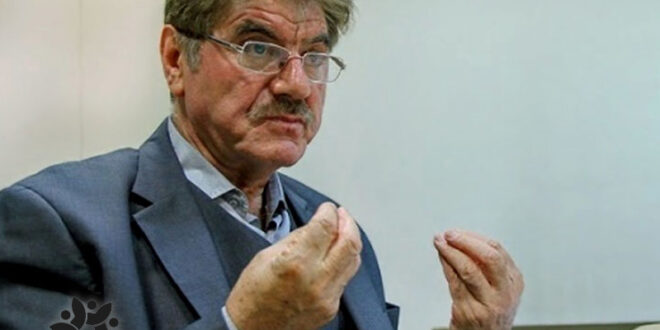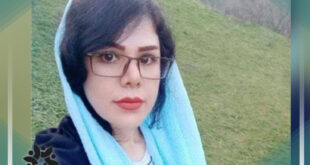Mehsa Amini’s family lawyer: There is no hope for a fair investigation
Mohammad Saleh Nikbakht, the lawyer of Mahsa (Zina) Amini’s family, in an interview with the Kurdistan Region of Iraq’s Rowdav network, rejected the claims of the Islamic Republic officials about Mehsa Amini’s physical condition and his illnesses and added:
At the age of 22, Amini was completely healthy and planned to start his studies at Urmia University soon. “All the claims that government agencies say about Gina, such as chronic illness, etc., are all lies and are not taken seriously.”
Sardar Hossein Rahimi, the police chief of Tehran, had previously said that there was no argument when Mehsa Amini was transferred to the ministerial detention center and even Amini was joking, but suddenly he had a stroke in the detention center and fell to the ground. Or that both his kidneys were said to have failed and the police said he was brain dead.
Meanwhile, Amjad Amini, Mahsa Amini’s father, said that his daughter had no illness and was completely healthy.
Also, contrary to the claim of Tehran’s police commander, Irfan Mortezaei, Mahsa Amini’s cousin said in an interview with Sky News yesterday that Mehsa was “tortured and insulted” in the Irshad patrol car that was going to the minister’s detention center.
Mortezaei added that the authorities of the Islamic Republic have pressured Mehsa’s father, mother and brother to appear on state television and remain silent in front of foreign media.
Mohammad Saleh Nikbakht, stating that since the Islamic Revolution in 1357, many people have been killed by the police, said:
“Killing prisoners in such places is not a new issue or limited to Gina. In the past 43 years, killing of prisoners has been widespread in Iran.
Nikbakht added that if Mehsa Amini had died in the Kurdish regions and not in Tehran, it would have been much easier to cover up her death by using separatist accusations against her. He said:
“If Zina was killed in Kurdistan, they could have distorted the facts, but this time they couldn’t.”
Nikbakht expressed his disappointment about the fair investigation of Mehsa Amini’s case because, according to him, it would make the authorities look like the perpetrators of the crime and this could be a precedent for many other similar cases. Nikbakht added:
“The legal team has called for an independent fact-finding committee as well as a medical committee to investigate what really happened.”
According to the statistics of the Iran Human Rights Organization based in Oslo, in the 11 days of nationwide protests since the murder of Mehsa Amini, at least 76 protesters have been killed, hundreds injured and many arrested.
In recent days, many protests have been held in dozens of cities around the world to condemn the murder of Mehsa Amini.
On Thursday, September 31/September 22, in response to the killing of Mehsa Amini, the US Treasury Department put Irshad Patrol on its sanctions list and Mohammad Rostami Cheshmegachi and Ahmad Mirzaei, the chiefs of Tehran’s Moral Security Police, and five other senior security officials who were “Suppression of protesters” played a role, sanctioned.
Yesterday, Canada also sanctioned “dozens” of individuals and institutions of the Islamic Republic, including the “Moral Security Police”.
On Sunday, the European Union condemned the “unjustifiable” and “unacceptable” use of violence against protesters in Iran, and Germany summoned the Iranian ambassador.



